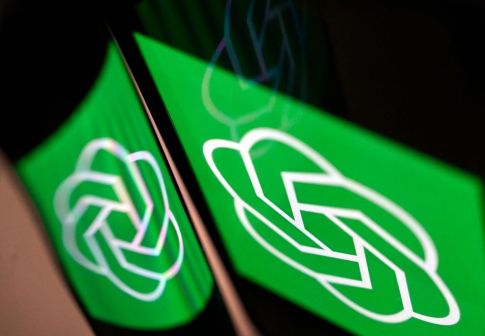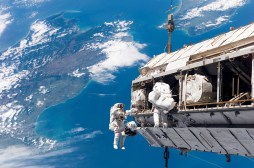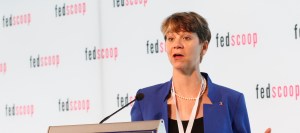New NASA software crowdsources asteroid detection
If you have ever wanted to discover an asteroid, you now have the ability to do it straight from your computer.
NASA announced a new software program Sunday that increases the likelihood of amateur astronomers discovering asteroids. Built with the help of Planetary Resources, a company researching asteroid mining, along with Harvard University and the University of Arizona, the software contains an algorithm that better analyzes images for potential asteroids.
The software can now identify asteroids in the belt between Mars and Jupiter 15 percent better than previously possible, something Jenn Gustetic, White House assistant director for open innovation, called “the largest scientific advancement or increase in capability that we have seen in a very long time.”

“We had nonaerospace engineers, nonaerospace physicists, nonplanetary scientists that were in the Topcoder community that used advanced machine learning approaches to develop the algorithm,” Gustetic said Sunday during a panel at the South By Southwest Interactive conference. “It really shows how much the crowd can actually help with questions of rocket science.”
The Asteroid Data Hunter challenge was actually launched at last year’s South By Southwest conference with winners picked in December, earning a share of $55,000 in the process.
The software builds upon the practice of taking images of the same place in the sky and looking for starlike objects that move between frames, which signals the discovery of an asteroid. With the software, amateur astronomers can take images from their telescopes and analyze them with the application, which will tell the user whether a matching asteroid record exists and offers a way to report new findings to Harvard’s Minor Planet Center to confirm and archive new discoveries.
“The beauty of such archives is that the data doesn’t grow stale, and with novel approaches, techniques and algorithms, they can be harvested for new information. The participants of the Asteroid Data Hunter challenge did just that, probing observations of the night sky for new asteroids that might have slipped through the software cracks the first time the images were analyzed,” Harvard’s Jose Luis Galache said.
NASA officials who spoke on Sunday’s panel used the Asteroid Data Hunter challenge as an example of how the government’s challenges are a way for not just subject experts to solve NASA’s problems but anyone who thinks they have an idea that a government agency can benefit from.
Sam Ortega, NASA’s Centennial Challenges program manager, told the crowd about a previous open competition aimed at creating new gloves that better protected astronauts’ hands. The second-place winner in that competition had zero prior experience working with the government — he worked as a fabricator on Broadway, designing things like the costume wings Victoria’s Secret models wear in the company’s advertising campaign. After participating in the challenge, the fabricator created a company, Final Frontier Design, that now makes spacesuits for public and private space organizations around the globe.
With the federal government awarding more than $70 million in more than 400 challenges since 2005, Sunday’s panel drove home the idea that individuals and small businesses, no matter their background, can innovate in areas that would normally seem beyond their reach.
“The concept that you have to be a rocket scientist or a total engineer to compete in space exploration is completely wrong,” Ortega said.
Download the Asteroid Data Hunter software for free on Topcoder’s website.
To find out more about NASA’s Open Innovation projects, visit its website.






